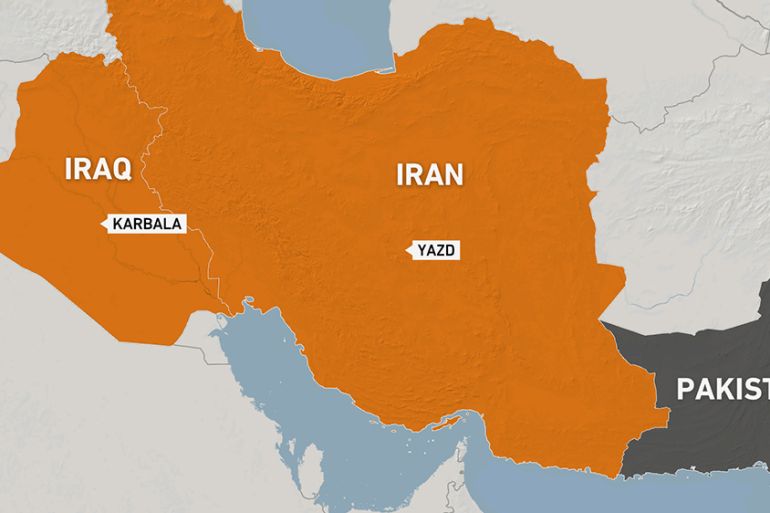Bus crash in Iran kills at least 28 Pakistani pilgrims travelling to Iraq
Accident in central province of Yazd was blamed on a defective braking system, according to preliminary police probe.
The bus had 53 passengers on board and it crashed en route to the holy city of Karbala in Iraq for the Arbaeen pilgrimage [Al Jazeera]Published On 21 Aug 202421 Aug 2024
At least 28 pilgrims from Pakistan have been killed and 23 injured after their bus overturned in central Iran, according to Iranian state media.
The accident took place late on Tuesday in the central province of Yazd. There were 53 passengers on board when the bus crashed en route to the holy city of Karbala in Iraq for the Arbaeen pilgrimage.
Keep reading
list of 3 itemslist 1 of 3
Photos: Shia Muslims worldwide mark Ashura
end of list
A technical defect in the vehicle’s braking system caused the accident, according to a preliminary investigation by traffic police in Yazd, state media reported on Wednesday.
Millions of Shia Muslims are currently taking part in the Arbaeen pilgrimage and they typically drive through Iran to reach their destination.
“Unfortunately, 11 women and 17 men lost their lives in this accident. Seven of the injured people are in critical condition and six injured people have now left the hospital,” Ali Malekzadeh, the crisis management director general of Yazd, told state TV.
Of the 23 people injured, six have been discharged while seven are in critical condition, he said.
The Arbaeen commemoration marks the 40th day of mourning for Imam Hussein, the grandson of the Prophet Muhammad and son of Imam Ali, who was killed in 680 AD on the plains of Karbala.
Many pilgrims opt to walk 80km (50 miles) from the nearby city of Najaf, where Imam Ali is buried, to Karbala.
Last year, some 22 million pilgrims attended the commemoration in Karbala.
Iran has one of the world’s worst traffic safety records with some 17,000 deaths annually. The high death toll is blamed on a disregard for traffic laws, unsafe vehicles and inadequate emergency services in its vast rural areas.
